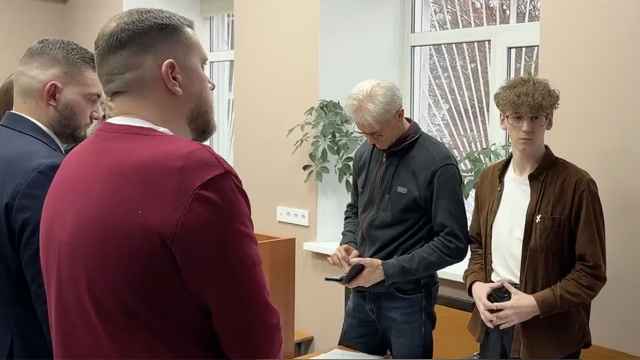Russia’s state communications watchdog Roskomnadzor confirmed Wednesday that it is restricting voice and video calls on WhatsApp and Telegram, describing it as an anti-fraud measure to protect citizens, a move both companies later criticized.
“Calls on these foreign messaging platforms are partially restricted to counter criminal activity,” the state-run news agency TASS quoted Roskomnadzor as saying in a statement. “Nearly all such fraudulent calls have shifted to foreign messengers, which refuse to ensure the safety of Russian users.”
On Sunday, Russians across the country began reporting problems making voice and video calls via WhatsApp and Telegram. However, it was not immediately clear how widespread the disruptions were, as The Moscow Times has managed to make calls to people in various regions through the messaging apps without issue.
Roskomnadzor’s statement confirmed earlier reports that the Russian government was “selectively blocking” calls on the two messaging platforms, which allegedly began at the start of August.
According to the state watchdog, WhatsApp and Telegram have become the primary channels for call-based scams, extortion and recruitment into acts of terrorism and sabotage over the past year. Russia’s Digital Development Ministry said calls on the messaging apps could be restored if they comply with Russian law.
“No other functions of these apps are being limited,” Roskomnadzor was quoted as saying by TASS.
WhatsApp is used daily by more than two-thirds of Russians, while Telegram, besides offering instant messaging, is a popular source of news and information. Multiple Russians have told The Moscow Times that the recent restrictions on calls have made it difficult for them to communicate with family and friends.
On Wednesday, State Duma lawmaker Anton Nemkin accused both platforms of ignoring Russian laws “for many years,” including failing to remove banned content, and said fraud cases on WhatsApp alone rose 250% in 2024.
“Partially restricting calls to WhatsApp and Telegram is a necessary measure to protect citizens from one of the most widespread types of crime in the digital environment — telephone and internet fraud,” said Nemkin, who is a member of the lower house of parliament’s Committee on Information Policy, Information Technology and Communications.
A spokesperson for WhatsApp later suggested in a statement that Russian government restrictions on the platform were politically motivated.
“WhatsApp is private, end-to-end encrypted, and defies government attempts to violate people’s right to secure communication, which is why Russia is trying to block it from over 100 million Russian people,” the spokesperson said.
“We will keep doing all we can to make end-to-end encrypted communication available to people everywhere, including in Russia,” they added.
Telegram, meanwhile, said it “actively combats misuse of its platform, including calls for sabotage or violence, as well as fraud,” and removes “millions of pieces of harmful content every day.”
The disruptions come amid reports that the Russian authorities are considering blocking access to WhatsApp entirely, a move that could force Russians to switch to a domestic app called Max.
While still in its testing phase, Max is expected to become Russia’s national messaging platform, similar to China’s WeChat, which has faced accusations of surveilling users and sharing data with the government.
Max has also been accused of collecting user data, including IP addresses and activity logs, as well as reserving the right to share information with third parties and government agencies.
Mack Tubridy contributed to this report.
A Message from The Moscow Times:
Dear readers,
We are facing unprecedented challenges. Russia's Prosecutor General's Office has designated The Moscow Times as an "undesirable" organization, criminalizing our work and putting our staff at risk of prosecution. This follows our earlier unjust labeling as a "foreign agent."
These actions are direct attempts to silence independent journalism in Russia. The authorities claim our work "discredits the decisions of the Russian leadership." We see things differently: we strive to provide accurate, unbiased reporting on Russia.
We, the journalists of The Moscow Times, refuse to be silenced. But to continue our work, we need your help.
Your support, no matter how small, makes a world of difference. If you can, please support us monthly starting from just $2. It's quick to set up, and every contribution makes a significant impact.
By supporting The Moscow Times, you're defending open, independent journalism in the face of repression. Thank you for standing with us.
Remind me later.






